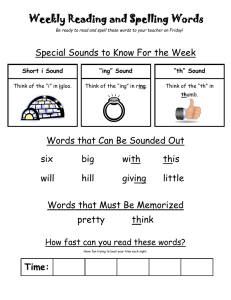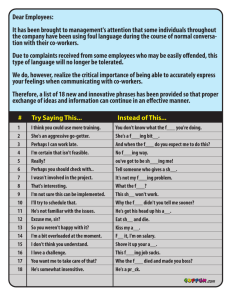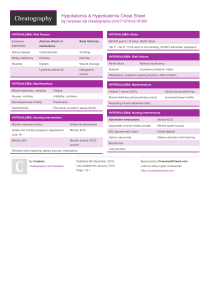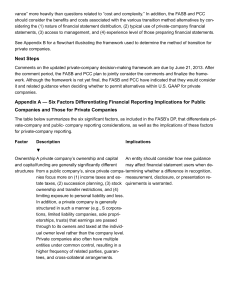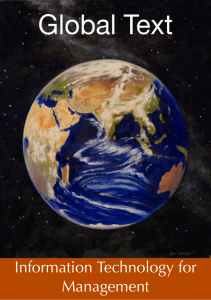Thinking Skills and Personal Capabilities in the Foundation Stage
advertisement
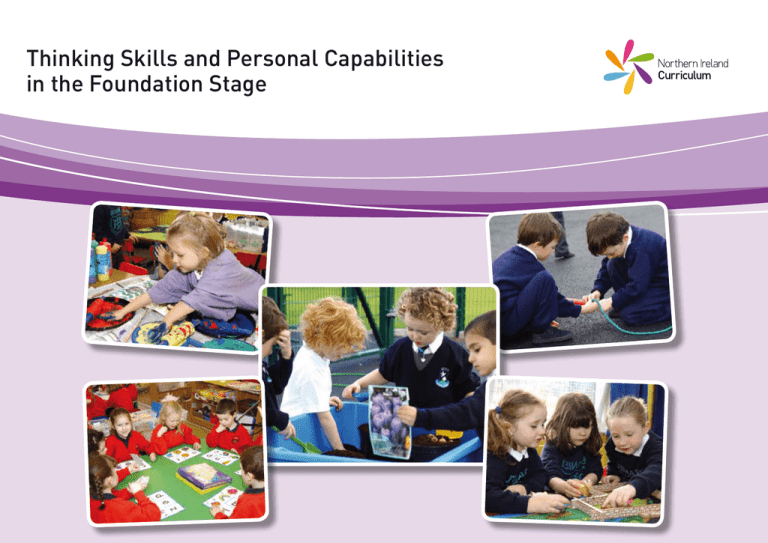
Thinking Skills and Personal Capabilities in the Foundation Stage Caring Friendly Relaxed Encouraging Welcoming Supportive Risk taking Valuing s ill hildren’s think c g n ing rvi e sk aching e t bs g str n oti at om iate ph op r ys r p ies eg t De Allowing time Observing Providing challenge Encouraging risk taking Scaffold learning Making links Offering Alternatives Introducing a degree of ambiguity • Developing reflective thinking en • • • • • • • • m Listening Encouraging Fostering creativity Questioning Modelling Considering mistakes as learning opportunities • Providing Feedback • Providing openended tasks nviron • • • • • • Creating a learning ethos Developing an appropriate physical environment • Children’s own work • Resources are evident well organised and • There are interactive stimulating displays • There may be a range of thinking • There is effective use of space and aids colour • Choice and • There are independence are opportunities for facilitated outdoor learning le ica Promoting teaching strategies ping an a o l p ve Pr • • • • • • • • O Creating a learning ethos Promoting Thinking Skills and Personal Capabilities across the curriculum in the Foundation Stage Observing children’s thinking skills • Develop memory skills • Be aware of others • Recall • Observe • Describe • Express ideas • Ask questions • Make suggestions • Understand and follow instructions • Resolve conflicts • Solve problems independently • Process information • Be creative • Use imagination • Make connections • Give options and reasons • Build on others’ ideas • Make decisions • Empathise ...Managing Information d respond to a focus, ask an • Work with sk. ta e rify th questions to cla ion from at help, inform d • Select, with s provided an ce ur so re d an materials information. in ta ob to ys suggest wa n to a task. tions in relatio • Follow direc an. • Begin to pl record ple methods to • Identify sim information. ...Being Creative • Be curious and ask ques tions about the world arou nd them, using all the senses to expl ore and respon d to stimuli. • Talk about their memories and experiences. • Play for ple asure and as a form of creative expres sion. • Show excit ement, enjoym ent and surprise in lea rning. • Be willing to take on new challenges. • Experimen t with ideas th rough writing, draw ing, mark mak ing, model making . How can we create opportunities for children to develop TS&PC across the curriculum in the Foundation Stage? Through observation and assessment we will discover if children demonstrate... ...Working with Others • Be willing to join in. • Learn to work and play cooperatively. • Develop routines of listening, turn-taking, sharing, co-operating and reaching agreement. • Be able to learn from demonstrating and modelling. • Be aware of how their actions can affect others. • Learn to behave and use words to suit different purposes. • Develop confidence at being with adults and other children in a variety of contexts. ...Thinking, P roble and Decision m Solving Making • Show their ability to mem orise by recalling and restructuring experiences and stories. • Make close observation an d provide descriptions of what they notic e. • Show the ab ility to sequen ce and order events and inf ormation, and to see wholes and parts. • Identify an d name objec ts and events same/differen as t, sort and pu t objects into groups. • Make simple predictions an d see possibilities. • Give opinion s and reasons. • Ask differen t types of ques tions. ...Self Management y are doing • Talk about what the ned. and what they have lear s, focu to ity • Develop the abil sist with sustain attention and per tasks. of emotions • Develop awareness s and about learning, their like dislikes. ices and • Be able to make cho decisions. nd for help. • Ask an adult or frie
